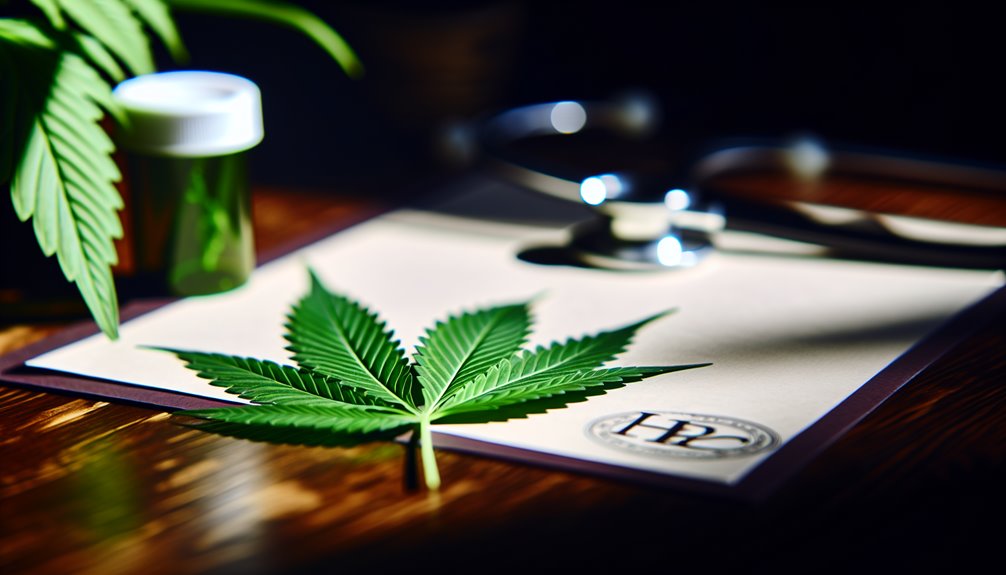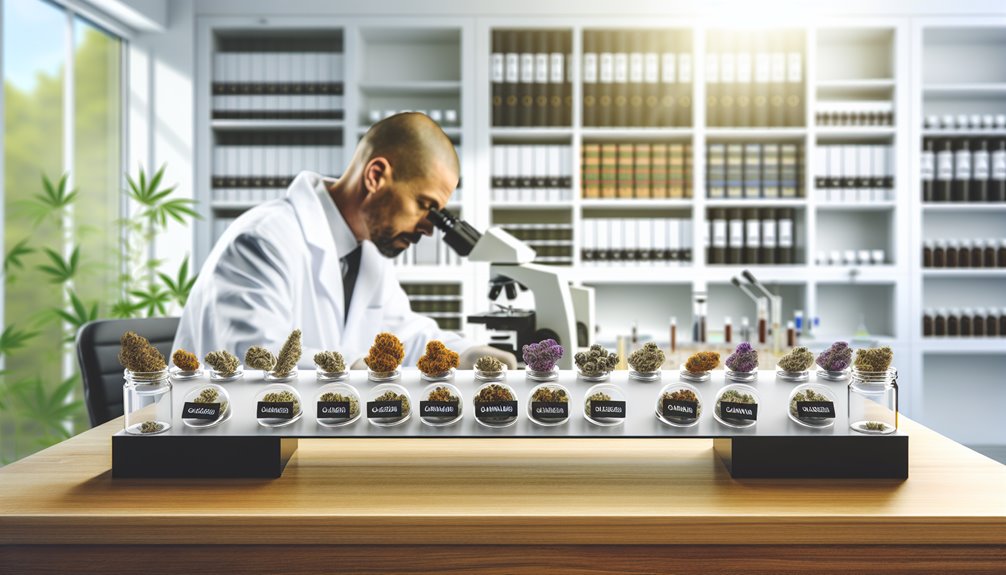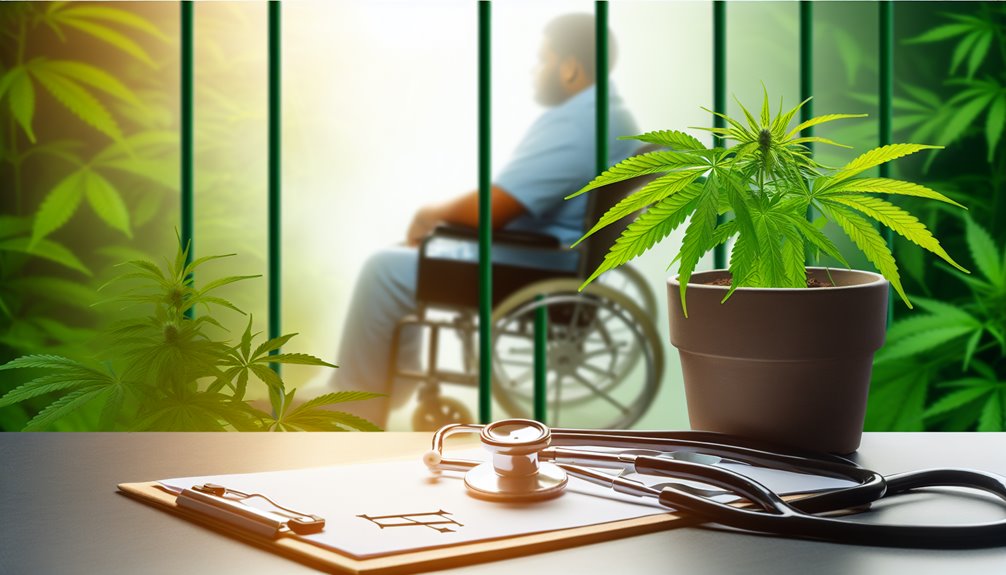You've likely heard of the medical cannabis conundrum in the United States. It's a peculiar situation: 39 states have legalized its use for medical purposes, yet it remains a Schedule I drug at the federal level. This dichotomy creates a web of challenges, from ethical dilemmas to disparities in patient access and insurance coverage, and even impacts the role of the FDA. Curious about the implications of this intricate legal and regulatory landscape? Let's unpack it.
The Evolution of Medical Cannabis Legislation in the U.S

While the path to legalizing medical cannabis in the U.S has been long and winding, it's compelling to observe its progression at both state and federal levels. Understanding the historical context, you'll appreciate the legislative challenges overcome. Initiating in 1973, Oregon decriminalized cannabis, a bold move that sparked the trend of state-level liberalization. The watershed moment arrived in 1996, when California legalized medical cannabis. Subsequent years saw a domino effect, with states like Washington, Oregon, Alaska, Nevada, and Maine following suit. The new millennium ushered in further diversification, with Hawaii pioneering legalization through legislation in 2000, and states such as Vermont, Montana, and Rhode Island continuing the trend. Federal interventions and protections later reinforced these state legislations, shaping the landscape of medical cannabis today. Despite these positive strides, the federal classification of cannabis as a Schedule I drug in 1970 under the Controlled Substances Act posed significant challenges to its acceptance and use.
State Laws vs. Federal Laws: The Dichotomy of Cannabis Regulation
As the landscape of medical cannabis legislation evolved over the years, a distinct dichotomy has emerged between state and federal laws. You see, while 39 states have legalized medical cannabis, it's still deemed illegal at the federal level, a Schedule I drug under the Controlled Substances Act. This disparity creates significant legal challenges, with state compliance often at odds with federal prohibition. Despite protections like the Rohrabacher–Farr amendment, these inconsistencies remain, impacting patients, healthcare providers, and the overall quality of healthcare delivery. The President's announcement in October 2022 to review cannabis scheduling suggests a potential shift in federal policy, but the impact remains to be seen. Recent indications suggest potential federal reclassification of cannabis, which could align the laws more closely. However, until then, this dichotomy continues to complicate the regulatory environment for medical cannabis.
Understanding the FDA's Role in Medical Cannabis Oversight

Ever wondered about the role of the Food and Drug Administration (FDA) in overseeing medical cannabis? The FDA plays a pivotal part, providing guidelines on conducting clinical research, supporting researchers, and enforcing regulations. They facilitate understanding of complex procedures and guarantee compliance with quality standards for drug products. They also require an Investigational New Drug (IND) application for clinical research, reviewing these applications meticulously to protect human subjects from unreasonable risk. The FDA follows a rigorous seven-step process for drug approval, guaranteeing that the health benefits of cannabis-derived drugs balance their known risks. Collaborating with the DEA and NIDA, the FDA conducts scientific and medical analyses to guarantee compliance with the "safe and effective" standard.
The Influence of Medical Cannabis on U.S. Healthcare Practices
Shifting our focus from the FDA's role, let's explore the influence of medical cannabis on U.S. healthcare practices.
- Patient Experiences: Medical cannabis users report enhanced quality of life, with less pain, improved sleep, and reduced anxiety.
- Healthcare Utilization: Remarkably, these users are less likely to visit emergency rooms or be admitted to hospitals, resulting in significant healthcare savings.
- Clinical Benefits: Medical cannabis serves as an effective treatment for conditions like chronic pain, pediatric epilepsy, PTSD, and others, enhancing patient outcomes.
- Economic Impact: The surge in medical cannabis use influences health insurance markets and overall healthcare delivery, though insurance companies currently do not cover it.
Medical cannabis's influence on U.S. healthcare practices is significant, changing patient experiences and healthcare economics.
Ethical and Legal Dilemmas Surrounding Patient Access to Medical Cannabis

While you might consider medical cannabis as a groundbreaking treatment option, it's essential to understand the ethical and legal dilemmas surrounding patient access. Ensuring patient autonomy requires shared decision-making, and ethical prescribing mandates a beneficial risk-to-benefit ratio. You must stay informed about evolving legislation, as federal law considers medical cannabis illegal, creating a conflict with state law. This discrepancy can lead to legal risks for prescribers. In addition, the Schedule I status under the Controlled Substances Act limits research, affecting clinical confidence in its efficacy. Equally important is justice, ensuring equal access for all eligible patients. To navigate these dilemmas, maintain transparent communication about potential risks and benefits, and continually educate yourself about the latest medical cannabis practices.
Conclusion
You're caught in a frustrating, Kafkaesque paradox. Your state gives a thumbs-up to medical cannabis, but Uncle Sam wags a finger. The FDA, chained by federal law, can't fully vouch for your treatment. Health providers are left scratching their heads, and your insurance shrugs. It's an ethical and legal quagmire, a never-ending game of red tape. You deserve better. It's high time your health didn't have to play second fiddle to political posturing.
If you're feeling lost in this maze, I invite you to visit Fells Point Cannabis Docs of Maryland. Our friendly team is here to help you navigate the complexities of medical cannabis and find the right solutions for your needs. You can also give us a call at (410) 401-4200. We're eager to answer your questions and support you on your journey toward better health!
